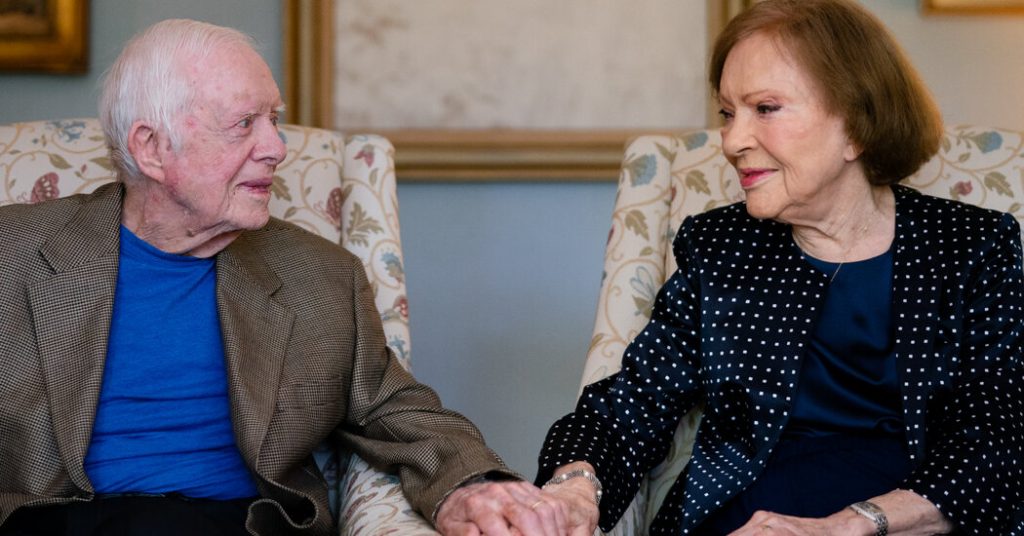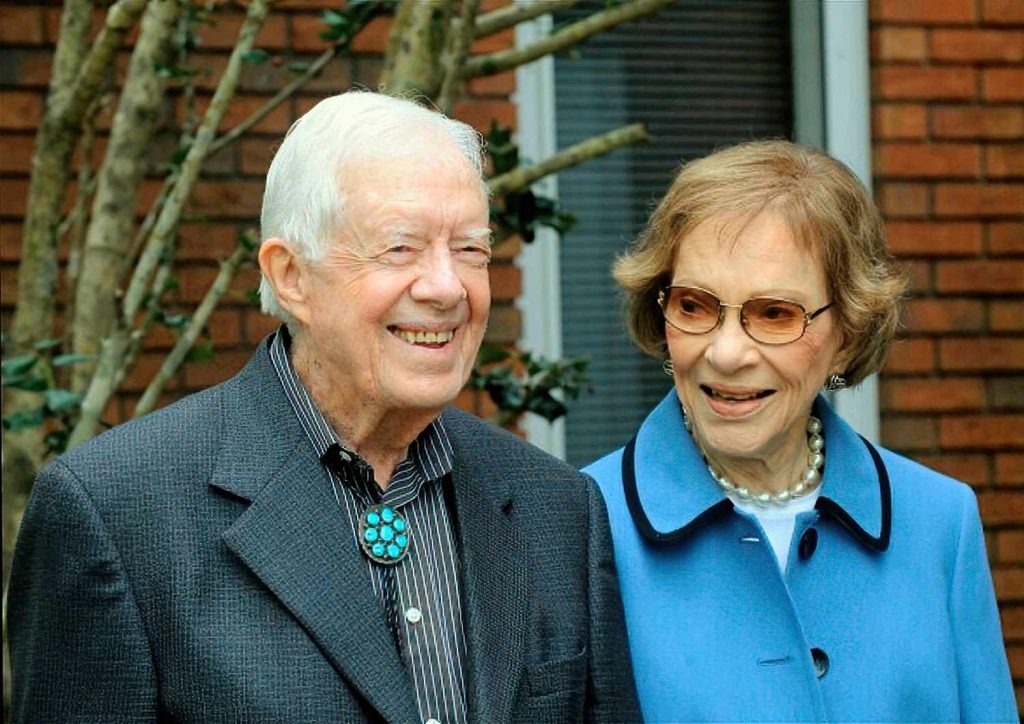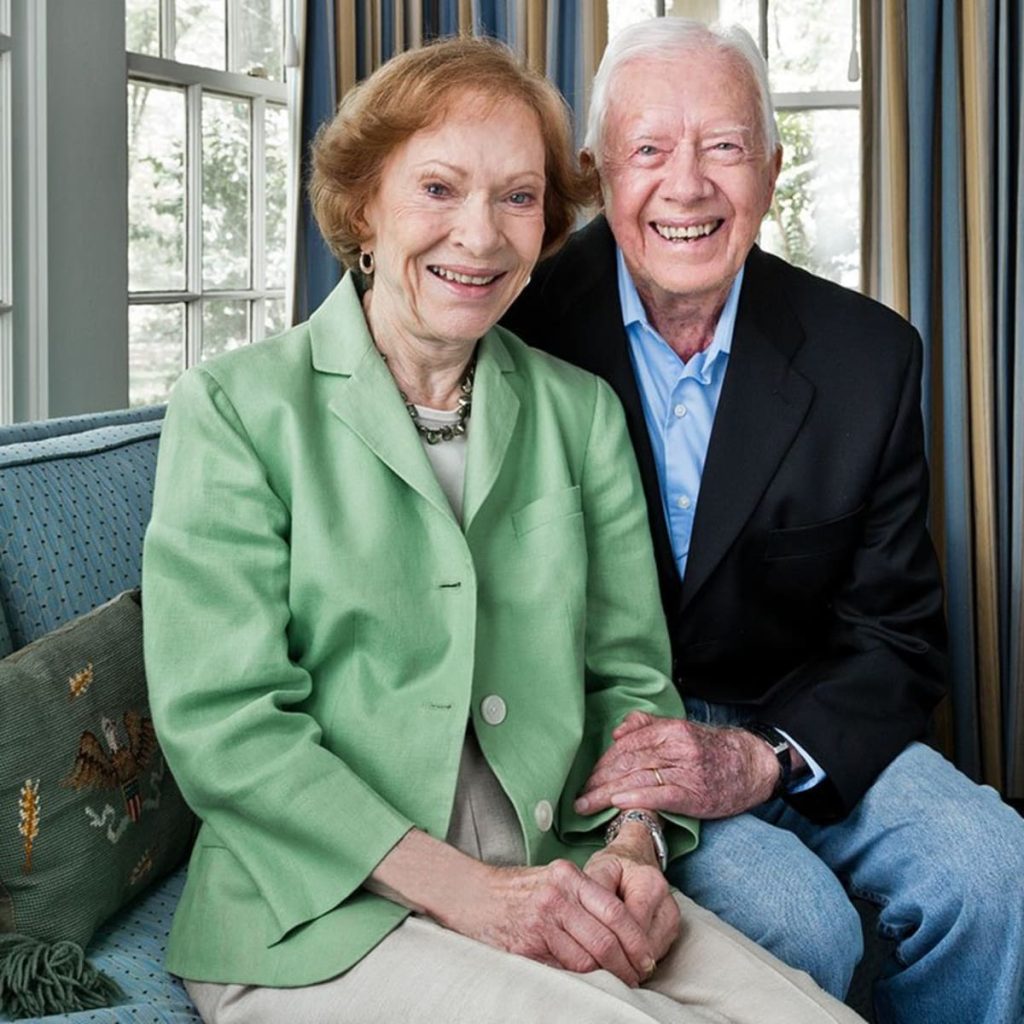Rosalynn Carter, the esteemed former First Lady of the United States, stands as a paragon of grace and resilience in American political history. Beyond her integral role as President Jimmy Carter’s wife, Rosalynn has ardently championed mental health awareness, women’s rights, and various humanitarian causes.
Rosalynn’s advocacy work extended beyond her role as First Lady (1977-1981), showcasing her dedication to societal well-being. Her Southern heritage, coupled with her commitment to various causes, illuminates the multifaceted nature of a woman whose influence extends far beyond the political sphere. To grasp the depth of her journey and contributions, it is crucial to explore the intricate facets of her identity, ethnicity being a significant aspect.
Diving into the Melting Pot: Unveiling the Vibrant Layers of Rosalynn Carter’s Heritage

Born on August 18, 1927, in Plains, Georgia, Rosalynn Smith Carter, initially named Eleanor Rosalynn Smith, embodies a Southern heritage deeply entrenched in the cultural mosaic of the American South. Hailing from a region with a rich and diverse cultural and ethnic background, Rosalynn’s ancestral roots are predominantly English and Scotch-Irish, mirroring the historical settlement patterns prevalent in the area.
Growing up in the South, she experienced the unique blend of traditions, dialects, and social norms that characterize the region. The warmth and hospitality associated with Southern culture are evident in her persona, reflecting the values instilled during her formative years. Rosalynn’s family ties are firmly anchored in the agricultural community of Plains, where her father, Wilburn Edgar Smith, worked as a farmer, and her mother, Frances Allethea Murray Smith, focused on raising Rosalynn and her three younger siblings.
Southern Roots and Resilience: Unveiling the Tapestry of Rosalynn Carter’s Legacy
Rosalynn Carter’s formative years in the mid-20th century Southern United States were pivotal in shaping her identity. Immersed in the region’s unique cultural amalgamation, she was influenced by the South’s distinctive traditions, dialects, and social norms. This environment played a crucial role in molding her worldview and values. The hallmark warmth and hospitality associated with Southern culture became integral aspects of her public persona.
Growing up in the American South, Rosalynn absorbed the richness of her surroundings, where community bonds and familial ties were paramount. The Southern ethos of resilience and camaraderie left an indelible mark on her character. The regional nuances, from the cadence of speech to the customs ingrained in daily life, contributed to the tapestry of her identity. Rosalynn’s journey from the heart of the South to the global stage as the First Lady exemplifies how her roots influenced not only her personal development but also her approach to public life. In essence, the Southern United States provided the backdrop for the emergence of a woman whose grace and resilience would resonate far beyond the borders of her hometown.
Rooted Resilience: Unveiling Rosalynn Carter’s Family Tapestry

Rosalynn Carter’s roots are firmly embedded in the agricultural enclave of Plains, Georgia. Raised by her father, Wilburn Edgar Smith, a dedicated farmer, and her mother, Frances Allethea Murray Smith, who prioritized nurturing Rosalynn and her three younger siblings, she emerged from a close-knit family unit. Growing up amidst the rigors of rural life, Rosalynn cultivated a robust work ethic and a profound connection to community.
In the agrarian setting of Plains, the Carters faced the challenges of agricultural life, instilling in Rosalynn a resilience that would shape her future endeavors. The values of hard work and the importance of community ties, ingrained during her formative years, became foundational elements of her character. This familial backdrop not only laid the groundwork for her personal growth but also played a pivotal role in shaping the compassionate and dedicated individual who would later leave an indelible mark on American society as the First Lady alongside her husband, President Jimmy Carter.
Love Unleashed: The Power of Rosalynn and Jimmy Carter’s Transformative Union

Rosalynn’s life took a momentous turn when she married Jimmy Carter in 1946. As a political couple, the Carters faced both the challenges and opportunities that came with public service. Together, they navigated the complexities of American politics, with Rosalynn emerging as a supportive partner who brought her own insights and perspectives to the forefront.
Beyond the Pearls: Rosalynn Carter’s Impact as First Lady

During her tenure as First Lady from 1977 to 1981, Rosalynn Carter exhibited a profound commitment to social causes, with a particular focus on raising awareness about mental health. Her advocacy surpassed the conventional responsibilities tied to the position, highlighting her steadfast dedication to effecting positive change in society. Rosalynn’s impact extended far beyond the ceremonial aspects of her role, as she tirelessly worked to destigmatize mental health issues and promote understanding.
In an era when mental health discussions were often marginalized, Rosalynn Carter became a trailblazer, using her platform to address the challenges faced by those dealing with mental health issues. Her compassionate approach and advocacy efforts helped lay the groundwork for greater awareness and acceptance.
Read more:
- Robert Dobbs Ethnicity Unveiled: Hidden Heritage Sparks Internet Frenzy
- Jordan Sangha Ethnicity Drama: Behind Closed Doors, It’s a Whole New World
Conclusion
Rosalynn Carter’s ethnicity, deeply rooted in the cultural tapestry of the American South, is an integral part of her identity. Beyond the political spotlight, her Southern heritage, family background, and transformative marriage have shaped her into the compassionate and resilient individual we admire today. As we explore the life of Rosalynn Carter, it becomes evident that her rich ethnic background is just one facet of a remarkable woman who has left an indelible mark on American history.
